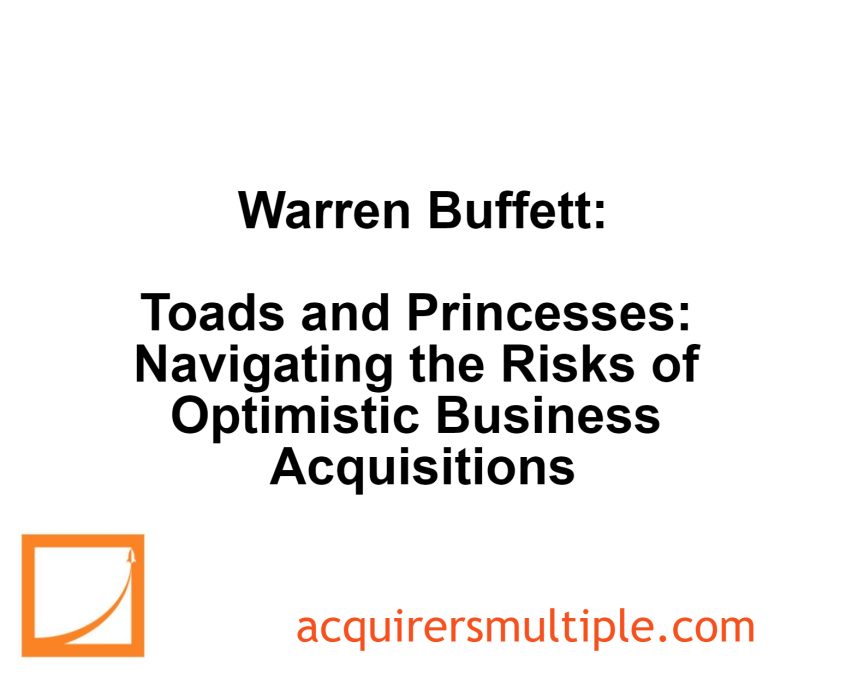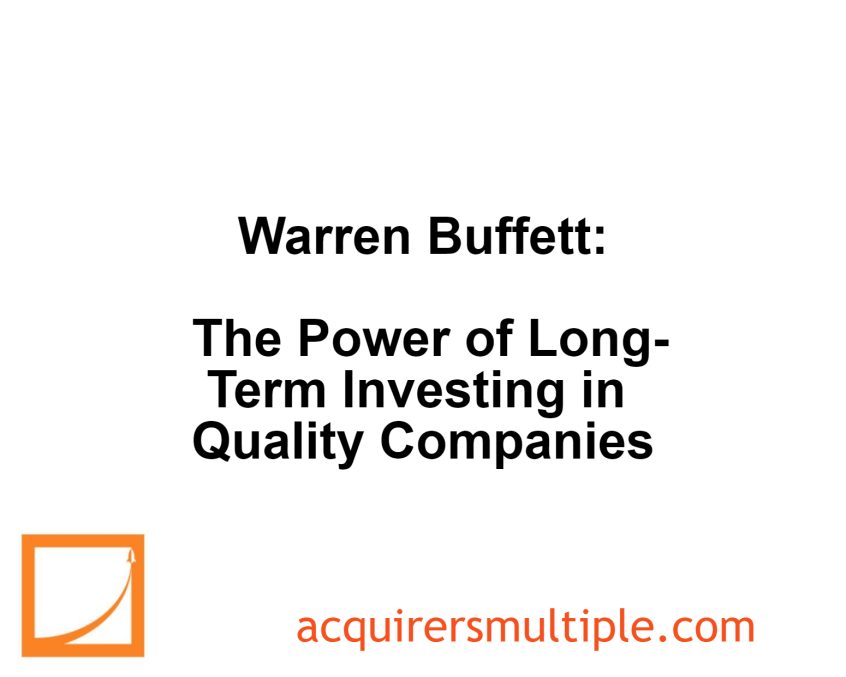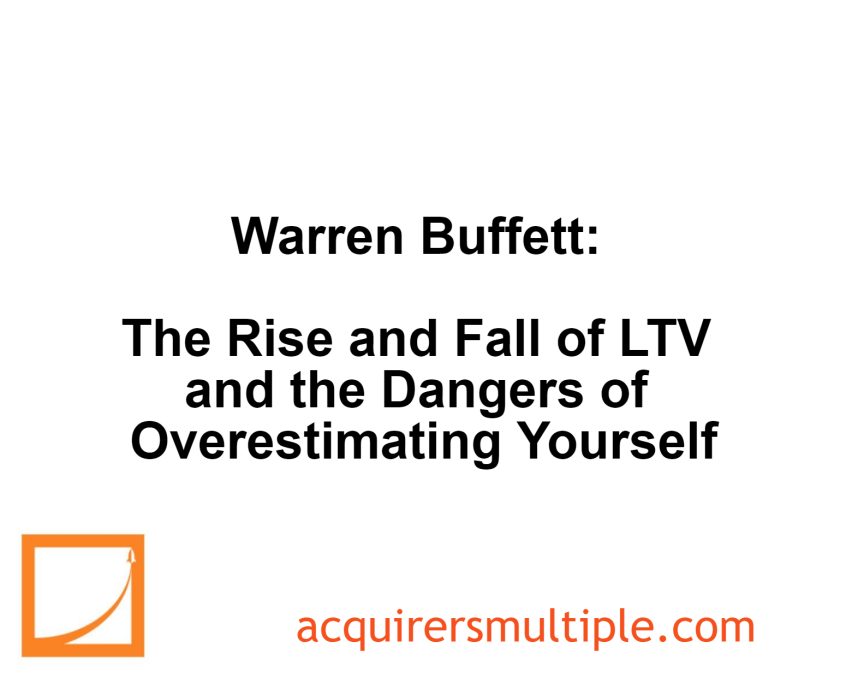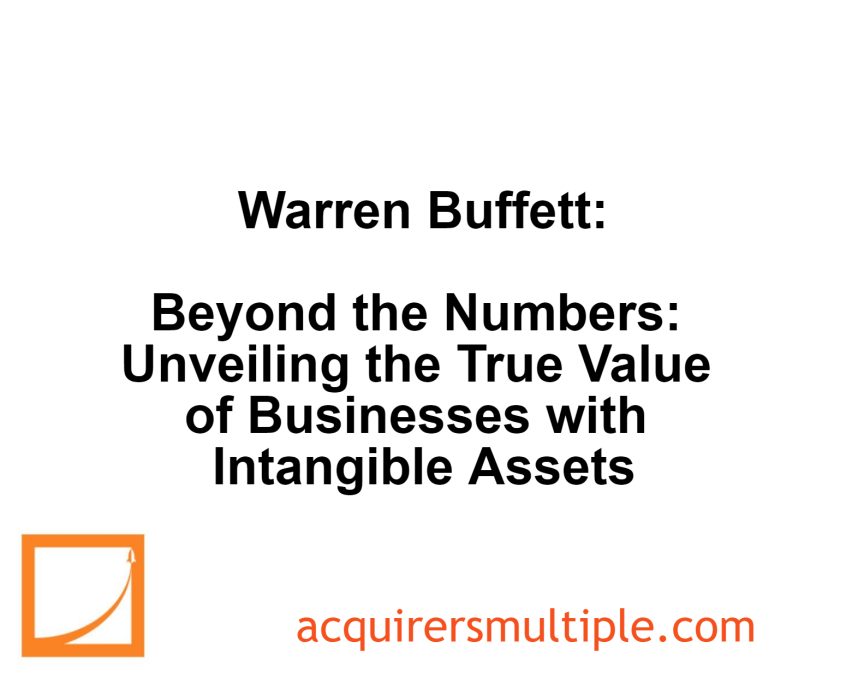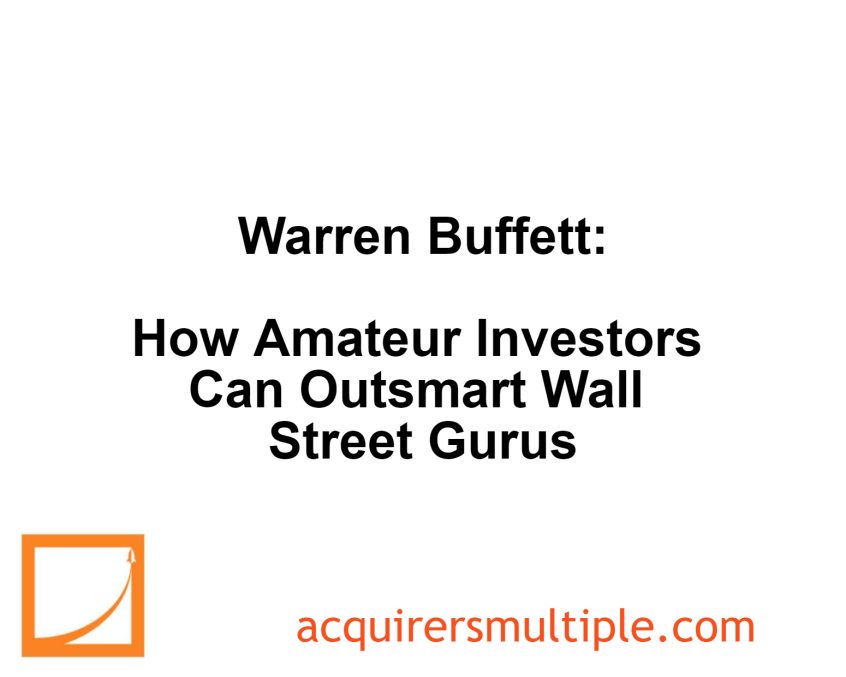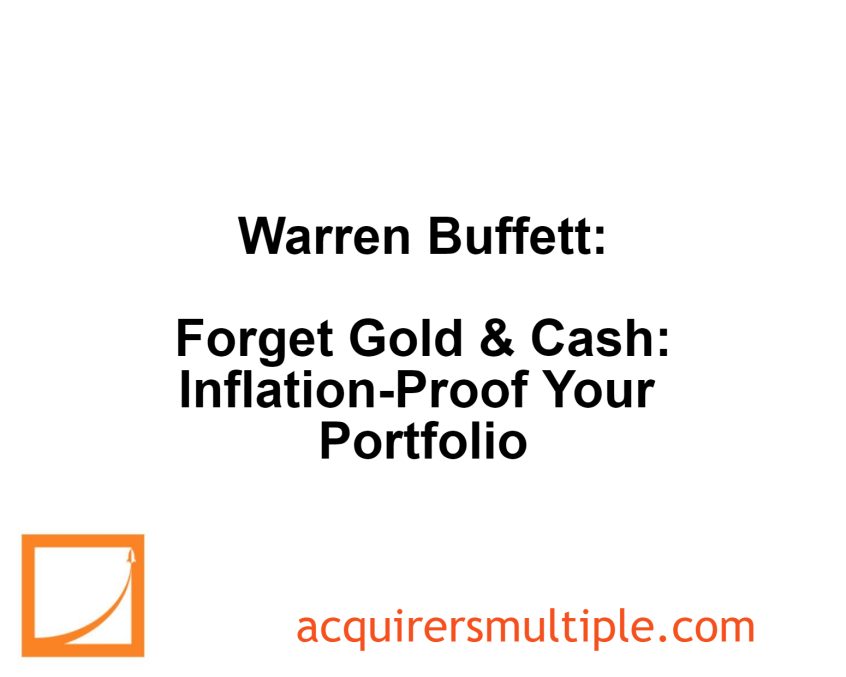In his 2016 Berkshire Hathaway Annual Letter, Warren Buffett explains that many investment professionals exploit human psychology to earn high fees, regardless of actual performance. This harms institutions like pension funds and enriches advisors. He uses an anecdote about selling livestock to illustrate how skilled storytellers, not necessarily experts, can … Read More
Warren Buffett: Toads and Princesses: Navigating the Risks of Optimistic Business Acquisitions
In his 1981 Berkshire Hathaway Annual Letter, Warren Buffett explained why he doesn’t believe in making small commitments when it comes to total ownership or part ownership in businesses. He discusses three motivations—usually unspoken—to be, singly or in combination, the important ones in most high-premium takeovers. Here’s an excerpt from … Read More
Warren Buffett: The Power of Long-Term Investing in Quality Companies
In his 2022 Berkshire Hathaway Annual Letter, Warren Buffett discussed his investments in Coca-Cola and American Express, which highlight the importance of investing in high quality companies with strong fundamentals, and holding them for long periods of time. His key points include: Berkshire Hathaway purchased significant stakes in both companies … Read More
Warren Buffett: The Rise and Fall of LTV and the Dangers of Overestimating Yourself
In his 2014 Berkshire Hathaway Annual Letter, Warren Buffett discusses the LTV corporation and its CEO, Jimmy Ling, as a cautionary tale about the dangers of financial hype and unrealistic expectations in the market. Key takeaways include: Financial markets can get irrational and follow charismatic figures like Jimmy Ling Don’t … Read More
Warren Buffett: Beyond the Numbers: Unveiling the True Value of Businesses with Intangible Assets
In his 1983 Berkshire Hathaway Annual Letter, Warren Buffett explained why a profitable business might not be a wise acquisition. While good businesses are good places to seek acquisitions, focusing purely on operating performance without considering true acquisition cost can lead to misjudgments. Here’s an excerpt from the letter: We … Read More
Warren Buffett: How Amateur Investors Can Outsmart Wall Street Gurus
In his 2013 Berkshire Hathaway Annual Letter, Warren Buffett outlined an investing strategy that could be used by non-professional investors to achieve success in the stock market. His key points for non-professional investors were: You don’t need special skills to invest. American businesses generally do well over time Aim to … Read More
Warren Buffett: The Best Investing Moves Get YAWNS, Not Applause
In his 2008 Berkshire Hathaway Annual Letter, Warren Buffett emphasizes that seeking approval should not be the aim of investing. This mentality can be detrimental for several reasons: It clouds judgment: When seeking validation, investors might become less attuned to new information or critical analysis, potentially missing valuable opportunities or perpetuating flawed … Read More
Warren Buffett: Investors Should Avoid These ‘Gruesome’ Types Of Businesses At All Cost
In his 2007 Berkshire Hathaway Annual Letter, Warren Buffett discussed the ‘gruesome’ businesses that investors should avoid at all cost. Here’s an excerpt from the letter: Now let’s move to the gruesome. The worst sort of business is one that grows rapidly, requires significant capital to engender the growth, and … Read More
Warren Buffett: Why Cash Trumps Stock in Acquisitions
In his 1997 Berkshire Hathaway Annual Letter, Warren Buffett discusses his strong preference for using cash over issuing Berkshire stock in acquisitions, citing a historical pattern of stock-only mergers resulting in shareholders being worse off. The difficulty arises from the ownership of a remarkable collection of businesses, making it challenging … Read More
Warren Buffett: Forget Gold & Cash: Inflation-Proof Your Portfolio
In his 2011 Berkshire Hathaway Annual Letter, Warren Buffett explained why he invests in productive assets (businesses, farms, real estate) over cash/currency or sterile assets (gold) during times of economic uncertainty. His reasons for preferring productive assets: Resilience against inflation: They can maintain their purchasing power by continuously producing goods and … Read More
Warren Buffett: The Birdie Blitz: Decoding the Dangers of Creative Accounting
In his 1998 Berkshire Hathaway Annual Letter, Warren Buffett explained how businesses can inflate their performance by hiding bad results and only presenting good ones. Using a golf analogy he provided two scenarios: Front-loading bad scores: A golfer purposefully scores terribly in the first round, creating a “reserve” of bad shots. … Read More
Warren Buffett: Fannie Mae Fumble: A $1.4 Billion Mistake Learned the Hard Way
In his 1991 Berkshire Hathaway Annual Letter, Warren Buffett discusses the two critical mistakes he made when Berkshire Hathaway had the chance to acquire a significant stake in Fannie Mae in 1988. Stopping buying after an initial price increase: This prevented him from fully seizing the potential growth. Selling their … Read More
Warren Buffett: Investing Lessons from the ‘Frozen Corporation’: Avoid Value Traps
During the 1998 Berkshire Hathaway Annual Meeting, Warren Buffett discussed Ben Graham’s ‘frozen corporations’ and why they should be avoided. Here’s an excerpt from the meeting: WARREN BUFFETT: Well, we discount at the long rate just to have a standard of measurement across all businesses. But we would take the … Read More
Warren Buffett: Investing Without Complexity: A Guide to Long-Term Wealth Creation
In his 1996 Berkshire Hathaway Annual Letter, Warren Buffett says to be successful at investing, you don’t need to understand complex concepts like beta, efficient markets, modern portfolio theory, option pricing, or emerging markets. Instead, you should focus on two key principles: how to value a business and how to … Read More
Warren Buffett: Investment Risks: Beyond Numbers – Assessing Long-Term Purchasing Power
In his 1993 Berkshire Hathaway Annual Letter, Warren Buffett explained why an investor’s primary concern should be whether their investment will provide enough purchasing power over time to compensate for the initial investment plus a reasonable return. While this risk cannot be precisely calculated, it can be assessed with a … Read More
Warren Buffett: In Markets Wild Things Create Their Own Truth For A While
During the 2000 Berkshire Hathaway Annual Meeting, Warren Buffett says that he has seen everything in the markets, including companies selling for tens of billions of dollars that are worthless, and companies selling for 20% of their worth. He believes that in markets wild things create their own truth for … Read More
Warren Buffett: Don’t Wait For Market Panics To Buy Great Companies
During the 1996 Berkshire Hathaway Annual Meeting, Warren Buffett discourages the strategy of waiting for market panics to buy great companies, comparing it to a mortician waiting for a flu epidemic, suggesting it may not be a reliable investment approach. Here’s an excerpt from the meeting: Buffett: Well I won’t … Read More
Warren Buffett: How Long Is The Right Time To Wait For Opportunities
During the 1998 Berkshire Hathaway Annual Meeting, Warren Buffett states that they haven’t found attractive investment opportunities in equities for a while. He also discusses how long investors should wait for the right opportunities. Here’s an excerpt from the meeting: Buffett: Well you’re correct that we have not found anything … Read More
Warren Buffett: Avoiding Down Years Is Just A ‘Fluke’
During the 2000 Berkshire Hathaway Annual Meeting, Warren Buffett explains why its been a fluke that his investments have consistently increased in underlying value without downturns, and acknowledges that there will be down years in the future. Here’s an excerpt from the meeting: Buffett: The interesting thing about those figures, … Read More
Warren Buffett: Cigar Butts and Low Returns on Equity: Time is the Enemy of Poor Businesses
During the 1998 Berkshire Hathaway Annual Meeting, Warren Buffett explained why he gave up his “cigar butt” approach to investing. Arguing that businesses with low returns on equity are not good investments, even if they are purchased cheaply, because time is the enemy of the poor business and the friend … Read More


